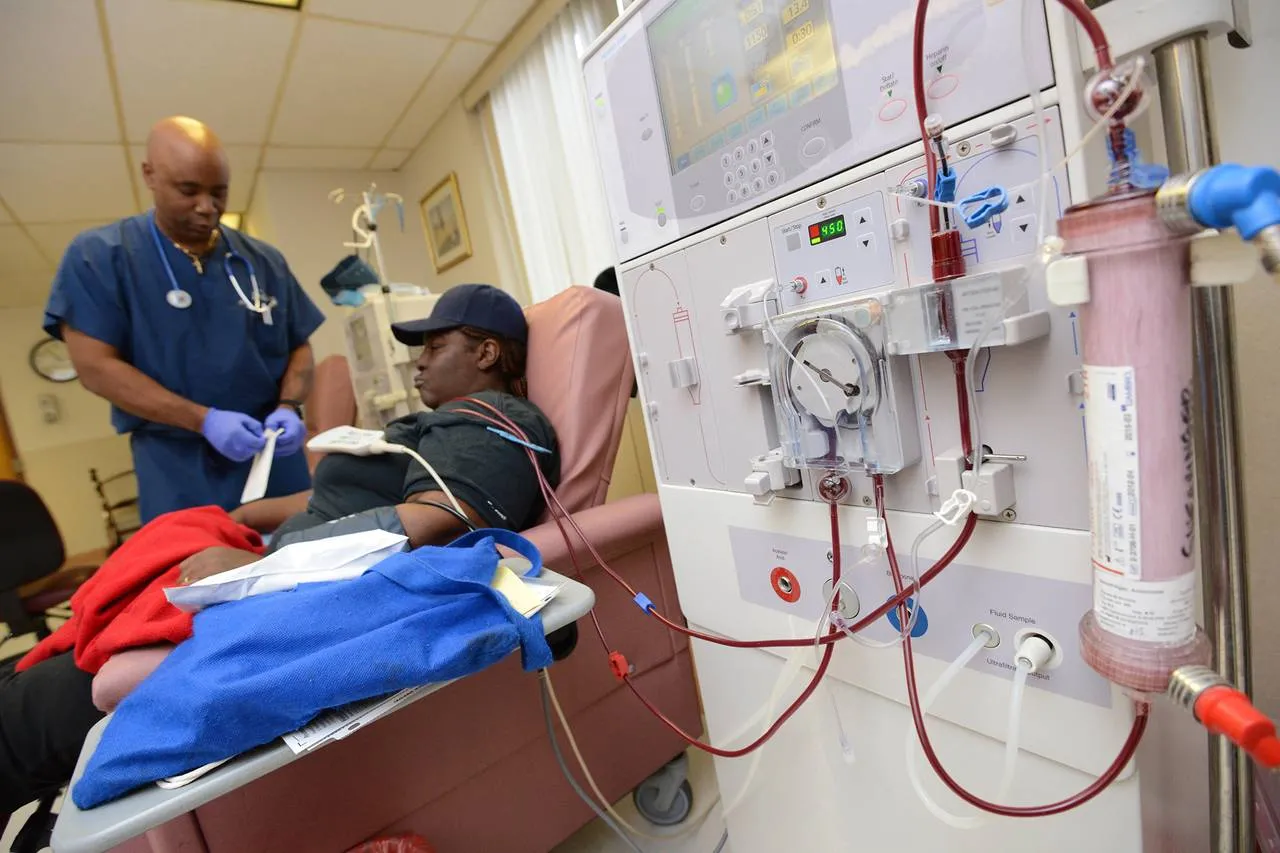The Importance of Mental Health Support for Dialysis Patients
Dialysis, a life-saving treatment for individuals with kidney failure, demands significant adjustments and frequent medical interventions. While the physical aspects...

Managing nutrition and diet is a crucial aspect of care for dialysis patients. The Best Dialysis hospital in Kenya is renowned for its comprehensive patient care and emphasizes the importance of a well-balanced diet tailored to the unique needs of individuals undergoing dialysis treatment. This guide aims to provide clear and simple advice on nutrition for those receiving dialysis, enhancing overall well-being and treatment efficacy.
Dialysis performs the kidneys' functions in filtering waste and balancing fluids and electrolytes. Due to this, patients have specific dietary requirements to control fluid retention, mineral imbalances, and waste accumulation. The goal is to support dialysis in removing toxins while maintaining optimal nutritional status.
Managing fluid intake is critical to prevent excessive fluid buildup between dialysis sessions. Patients are advised to monitor their fluid intake, including water, tea, soups, and foods with high water content, to avoid complications such as hypertension and heart strain.
Dialysis increases the body's protein needs due to the loss of amino acids during treatment. High-quality protein sources like lean meats, poultry, fish, and eggs are encouraged to maintain muscle mass and repair tissues.
Excessive potassium can lead to dangerous heart rhythms in dialysis patients, as the kidneys' ability to regulate this mineral is compromised. It's essential to moderate the intake of high-potassium foods like bananas, oranges, potatoes, and tomatoes.
Dialysis patients often need to limit phosphorus, which can accumulate and lead to bone and heart problems. Foods rich in phosphorus include dairy products, nuts, seeds, and whole grains. Phosphate binders may be prescribed to help control phosphorus levels.
Limiting sodium intake helps manage blood pressure and reduces thirst, helping to control fluid intake. Patients are advised to avoid high-salt foods and seasonings, opting for fresh, unprocessed foods instead.
Read Food Labels: Understanding food labels can help in making informed choices about sodium, potassium, and phosphorus content.
Meal Planning: Planning meals can help in maintaining a balanced diet and prevent impulse eating of restricted foods.
Cooking at Home: Preparing meals at home allows for better control over ingredients and cooking methods, reducing the intake of unwanted minerals and fluids.
The best dialysis hospitals in Kenya have dietitians specializing in renal nutrition as part of their healthcare team. These professionals play a vital role in:
Assessing Nutritional Needs: Individual assessments are conducted to determine each patient's specific dietary requirements based on their medical history, treatment type, and nutritional status.
Developing Personalized Meal Plans: Dietitians work with patients to create meal plans that meet their nutritional needs while considering their preferences and lifestyle.
Providing Ongoing Support: Regular follow-ups help in monitoring the patient's adherence to the diet, allowing for adjustments as needed and offering support in overcoming dietary challenges.
Adhering to dietary restrictions can be challenging for dialysis patients, potentially leading to feelings of deprivation and frustration. Solutions include:
Creative Cooking: Experimenting with herbs, spices, and salt-free seasonings can enhance the flavor of dishes without using restricted ingredients.
Education and Resources: Access to renal-friendly recipes, cooking classes, and educational materials can empower patients to enjoy a varied and satisfying diet.
Social and Emotional Support: Encouragement from family, friends, and support groups can help patients navigate dietary changes more positively.
Nutrition and diet play a pivotal role in the care of dialysis patients, directly impacting the effectiveness of treatment and overall quality of life. The best Hospital in Kenya recognized as a leader in dialysis care prioritizes nutritional management, offering personalized guidance and support to each patient. By adhering to dietary recommendations and leveraging the expertise of renal dietitians, dialysis patients can navigate their nutritional needs successfully, contributing to better health outcomes and enhanced well-being during their treatment journey.
Partager cet article